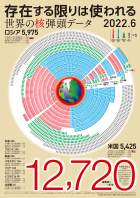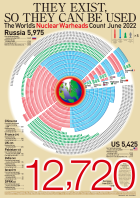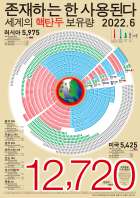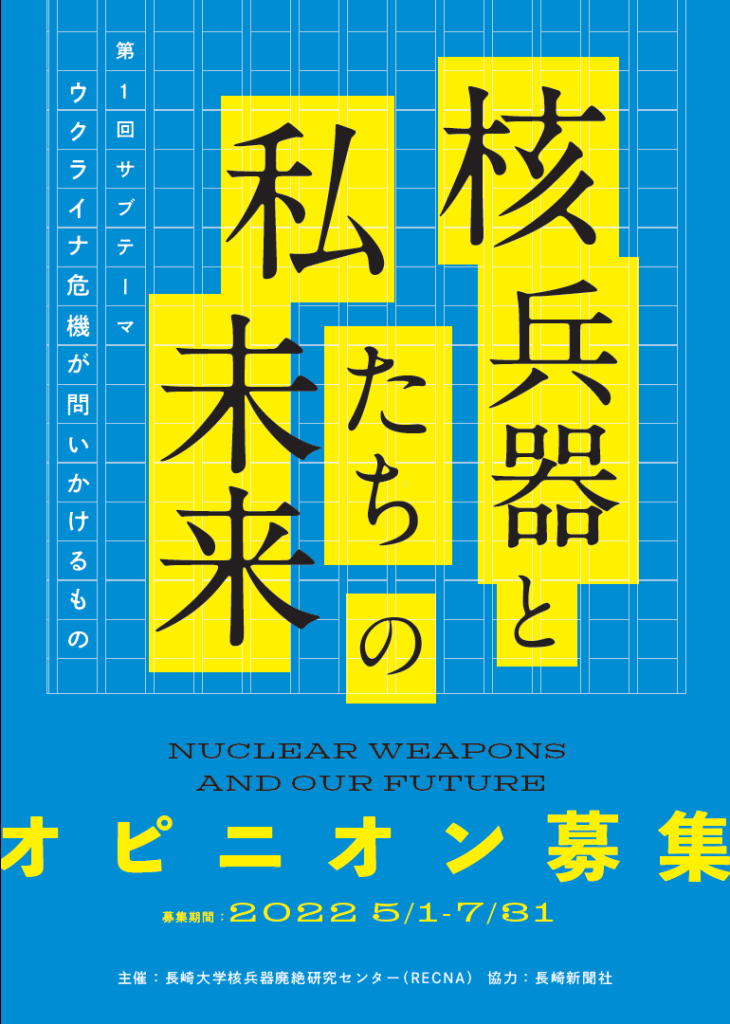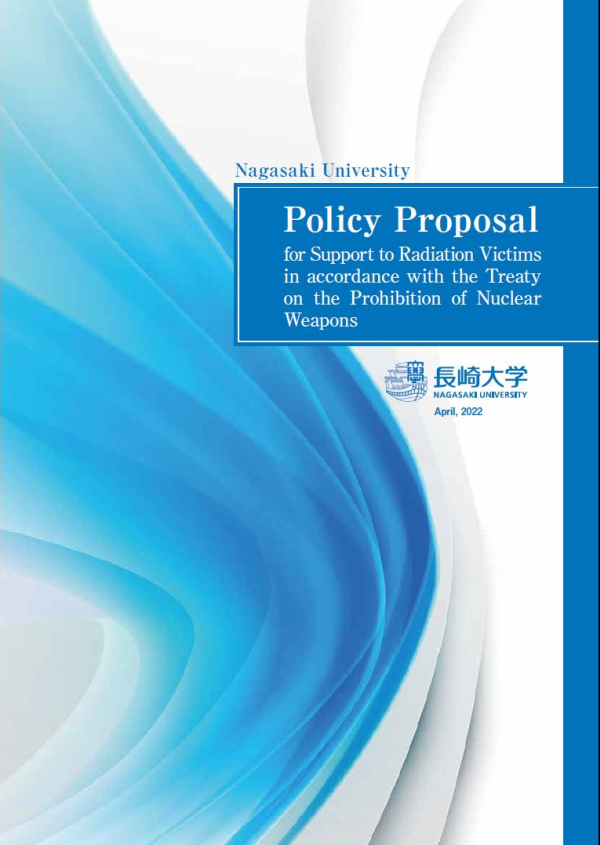2022年6月1日
Research Center for Nuclear Weapons Abolition, Nagasaki University (RECNA) issued Statement on May 25, 2022.
Statement on the “Japan-U.S.” and “ROK-U.S.” Joint Leaders’ Statements:
From the Perspectives of Denuclearization of Northeast Asia and Nuclear Disarmament
Research Center for the Nuclear Weapons Abolition, Nagasaki University (RECNA)
May 25, 2022
The Republic of Korea (ROK)-United States Joint Statement1 and the Japan-U.S. Joint Statement2 were issued on May 21 and 23, 2022, respectively. They were both comprehensive statements covering a wide range of topics, including not only security and alliance relations, most notably related to the Ukraine crisis, but also economic security, climate change, and pandemics. The following are RECNA’s views on some of the most noteworthy points of these statements from the perspective of the denuclearization and security of Northeast Asia, as well as nuclear disarmament and non-proliferation.
1. Denuclearization of the Korean Peninsula: Needs for confidence-building and a new security framework for the entire region
Both the ROK-U.S. and Japan-U.S. Joint Statements confirmed their commitments to the “denuclearization of the Korean Peninsula.” How to move it forward will be even more important from now on, and RECNA believes that it is essential to strengthen diplomacy toward stability and peace on the Korean Peninsula, carrying on the spirit of the U.S.-Democratic Republic of Korea (DPRK) Joint Statement issued at the Singapore Summit3. To this end, it is necessary to continue efforts for confidence-building and dialogue throughout Northeast Asia, including with China and Russia, and to propose a new security framework. Establishing a framework for disarmament and arms control is also indispensable, because security and disarmament/arms control are deemed to be paired and inextricably linked. In addition, diplomatic efforts should be made to ease tensions beyond “confrontation,” including humanitarian assistance to the DPRK, which is now facing a pandemic crisis. The DPRK should acknowledge that its very best policy is to exercise restraint in its nuclear and missile tests and embark on the path of dialogue.
The joint statements included strengthening extended deterrence and response capabilities to respond to the threats posed by the DPRK, China, and Russia, but, contrary to the intention, placing too much emphasis on this direction is fraught with the risk of further increasing tensions in the region. Thus, we demand the relevant countries constantly recognize the need for communication and dialogue at the leadership level, as indicated by the joint statements, and reconsider diplomatic strategy for averting a crisis.
2. Nuclear disarmament and non-proliferation: Strengthening the norm of “non-use of nuclear weapons
Although not included in the ROK-U.S. Joint Statement, the Japan-U.S. Joint Statement is commendable in that it confirms the intent toward a “world without nuclear weapons” and clearly states the strengthening of the Treaty on the Non-Proliferation of Nuclear Weapons (NPT), the increase of transparency, and nuclear risk reduction, the latter of which has been recognized as more of a reality due to the Ukrainian crisis. However, compliance with NPT Article VI was not included. In preparation for the NPT Review Conference to be held in August this year, we would like to reiterate our appeal to the nuclear weapon states to strengthen the norm of “non-use of nuclear weapons” in accordance with the joint statement of the leaders of the five nuclear weapon states released on January 3, 20224, which affirmed that “a nuclear war must never be fought.”
3. Holding the G7 Summit in Hiroshima: Starting a new trend of nuclear disarmament from the A-bombed city
As an academic body in an A-bombed city, we greatly welcome the announcement at the joint press conference5 that the decision had been made that the G7 summit would be held in Hiroshima in 2023. This will be an excellent opportunity to stem the tide of the nuclear arms race and create a new trend toward nuclear disarmament. From the A-bombed city of Hiroshima, it is hoped that the leaders of the G7 nations will make appeals to the world about the “inhumanity” of nuclear weapons and the reality of the atomic bombings, and show their renewed determination toward a “world without nuclear weapons.”
1“U.S.-ROK Leaders’ Joint Statement”, May 21, 2022. https://www.whitehouse.gov/briefing-room/statements-releases/2021/05/21/u-s-rok-leaders-joint-statement/
2“Japan-U.S. Joint Leaders’ Statement: Strengthening the Free and Open International Order,” https://www.mofa.go.jp/mofaj/files/100347252.pdf
3 “Joint Statement of President Donald J. Trump of the United States of America and Chairman Kim Jong Un of the Democratic People’s Republic of Korea at the Singapore Summit”, June 12, 2018. https://trumpwhitehouse.archives.gov/briefings-statements/joint-statement-president-donald-j-trump-united-states-america-chairman-kim-jong-un-democratic-peoples-republic-korea-singapore-summit/
4“Joint Statement of the Leaders of the Five Nuclear-Weapon States on Preventing Nuclear War and Avoiding Arms Race,” January 3, 2022. https://www.whitehouse.gov/briefing-room/statements-releases/2022/01/03/p5-statement-on-preventing-nuclear-war-and-avoiding-arms-races/
RECNA Policy Paper (REC-PP-13) “核戦争に勝者はありえず、核戦争は決して戦ってはならない-5核兵器国首脳共同声明の意義と課題(“There are no winners in nuclear war. Nuclear war cannot be won and must never be fought: Significance and challenges of the joint statement of leaders of five nuclear weapon states”), March 2022, https://www.recna.nagasaki-u.ac.jp/recna/bd/files/REC-PP-13.pdf (Japanese only)
5「来年のG7サミット、広島で開催へ 日米首脳会談でバイデン氏賛同 (“G7 Summit next year will be held in Hiroshima. Agreed by Biden at the Japan-U.S. Summit”」, Asahi Shimbun, May 23, 2022, https://digital.asahi.com/articles/ASQ5R4R2CQ5RUTFK00Y.html
Top of Page ⇑
>> RECNA’s EYE
